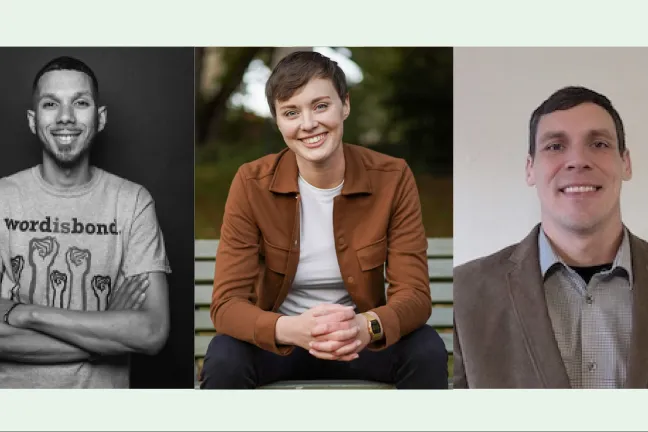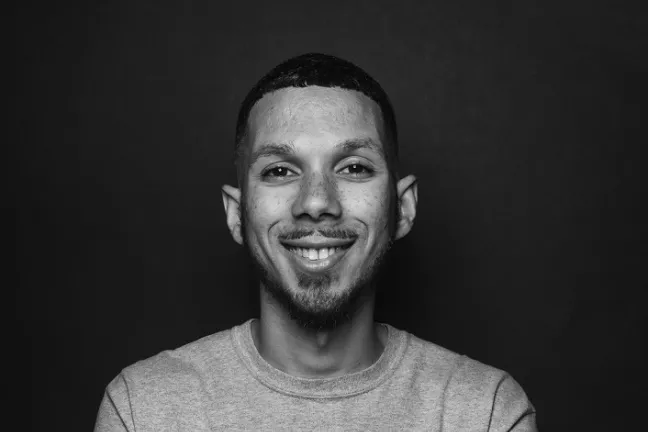Multnomah County’s Local Public Safety Coordinating Council (LPSCC) launched its first executive committee meeting of 2022 by welcoming new community representatives to the board.
The 24-member executive committee — led by co-chairs Multnomah County Chair Deborah Kafoury and Portland City Commissioner Jo Ann Hardesty — includes representatives from healthcare, human services, law enforcement, members of the judicial branch, defense attorneys, community providers, victims’ rights advocates and more. However, a critical component of the statutorily created body is the inclusion of community representatives who can bring the voices of those often unheard at criminal justice policy-making tables.
“Having a ‘citizen member’ of the LPSCC is required by law; that was the language written into the 1995 resolution that created LPSCCs across the state,” said Abbey Stamp, LPSCC’s executive director. “We had had one community member representative for 20 years when I came on board in 2013. I want to thank Christina Youssi, the Chair’s Office and the Office of Community Involvement for trying to figure out a better way to recruit folks.
Senate Bill 6 also requires providers of services to victims of crime,” she added.
The three newly appointed community representatives are:
- Morgan Godvin, founder of Beats Overdose Prevention (BOP), which combines overdose prevention outreach services with music events.
- Robert Northman, a Portland State University social sciences major and an intern with City of Portland Office of Violence Prevention’s Portland Restoration Academy.
- Lakayana Drury, founder and executive director of Word is Bond, a nonprofit organization dedicated to “rewriting the narrative between young Black men and community safety providers through leadership development, critical dialogue, and engagement.”
Lakayana Drury
“I’m originally from Wisconsin and I moved here to be a high school teacher at Rosemary Anderson High School,” said Drury, who was the first of the new members to introduce himself to the committee.
That was a very intentional decision, he shared. “It’s actually funny because a lot of my students would ask me later on, ‘Did you know we were the school with all the bad kids in it?’ And the answer was yes, but I don’t believe they were/are bad kids.”
Raised in Madison, Drury struggled at school and struggled to fit in. He recounted that he had only one Black teacher from kindergarten through 12th grade.
“I didn’t see education as a space for myself and I didn’t meet my father until I was 10 years old. So when I came to Portland, I wanted to work in an environment in a school with students with similar backgrounds as me,” he said.
In exchange for teaching high school students social studies, Drury said, “they gave me a perspective of Portland that’s shaped my work moving forward.”
“My lens of Portland has been shaped by youth who have seen the least of the large amount of resources that exist in the city. That’s the lens of the work that I am coming to the LPSCC committee with.”
After three years at POIC + Rosemary Anderson High School, Drury began the work to establish Word is Bond, which formally launched in the summer of 2017. The six-week paid summer internship program serves young Black men ages 16 to 21 in the Portland metro area. Today, the program has broadened to develop young Black men by helping them build connections with those who provide community safety; offering leadership, professional development, career exploration and public speaking opportunities; and education about Black history and storytelling.
“I believe our country has failed to protect and support Black people and allow them to have the opportunities to thrive in this country, so locally I think there’s a lot we can do,’’ said Drury.
Community safety brings to mind a narrow dynamic of law enforcement and crime, Drury said, “but it’s a lot bigger than that. It’s education, housing and a lot of opportunities, and what I’ll be doing is looking at community safety from a holistic lens.”
Morgan Godvin
“I am from East County, Centennial High School,” shared Morgan Godvin, founder of Beats Overdose Prevention.
“I’m a recent graduate of the Oregon Health and Sciences University-PSU School of Public Health. Public health is the lens through which I see the world. Specifically, public safety is public health.”
An impassioned advocate for harm reduction strategies and overdose prevention, Godvin serves on the Oregon Alcohol and Drug Policy Commission, as well as the Measure 110 Oversight and Accountability Council that is charged with overseeing grant funding for addiction recovery dollars through the decriminalization of drug possession.
But that wasn’t always her story, she shared. “I was released from federal prison four years ago yesterday. But my story goes a lot deeper than that.
Godvin shared that she started using drugs and she dropped out of high school. But because her mother was "career military," she joined the U.S. Air Force as a way to escape. After receiving a medical discharge, she tried to join the Washington County Sheriff’s Office.
When that didn't work out, she turned to heroin, an addiction that lasted many years.
She was arrested for drug possession multiple times and dropped out of Multnomah County Sanctions Treatment Opportunities Progress (STOP) court. Eventually, she was sentenced to federal prison for delivering the drugs that led to the overdose death of her best friend.
“I saw a different side of law enforcement, different from the one I had learned as a military brat coming from a place of racial and class privilege," she said.
“As soon as I got out, I started campaigning for justice … specifically crime prevention instead of crime punishment. One of my biggest areas is overdose prevention. I now work in harm reduction.”
Godvin founded Beats Overdose Prevention, a first-of-its-kind harm reduction program that combines overdose prevention on tours with hip hop musicians like Atmosphere and Cypress Hill. Her actual day job is as an editor for American Prison Newspapers archives, a collection of newspapers produced by and for incarcerated people.
“I want us to funnel resources into preventing harm before it happens, instead of waiting for harm to occur and then using that to punish another life,” she said.
Robert Northman
Robert Northman, a senior at Portland State University majoring in social science with a civic leadership minor, shared some of his life experience with executive committee members.
Born and raised in Northeast Portland, Northman grew up in poverty. His parents battled substance use disorders and he became involved in the justice system at an early age.
Today, his progress toward a college degree and his work in the community shine brightest in his life.
“I’ve worked and improved living conditions for the houseless and worked with at-risk youth and advocated for access to higher education for those in prison,” he said. “I’ve worked with formerly incarcerated persons to support re-entry into the community, trying to help identify needs and connect them to resources.
“I’m dedicated to finding ways with this committee to address the many challenges we face together in a place we all consider home.”
Commissioner Hardesty thanked the new members, saying, “I’m grateful you’re willing to volunteer your time to help us as we continue this transformation process. I think all of us understand that transformation is not an overnight process, but we have to be able to measure that we’re moving in the right direction. So I look forward to working with each of you.”
Multnomah County Presiding Judge Judith Matarazzo
The meeting also included an introduction to new Multnomah County Circuit Court Presiding Judge Judith Matarazzo.
“I have lived in Oregon for 42 years,” said Judge Matarazzo. On the bench, my favorite part was working as a DUII Intensive Supervision Program judge.
The DUII Intensive Supervision Program, or DISP, is a voluntary post-conviction treatment court for repeat DUII offenders. The program takes a collaborative and holistic approach to solving problems that contribute to creating the offender.
“I think that was one of the most meaningful aspects of my life because we actually got to communicate with people on a regular basis,” said Matarazzo.
“Unlike the normal court proceedings where you might see someone once or twice, I spent a good four years with people, and by the time they were graduating we knew them, their families and their stories. It gave you insight as to what a treatment court can do in terms of changing people’s behavior and bringing meaning to life.”
She continued: “I look forward to learning what you all do and participating as best as I."




